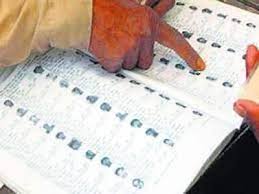NEW DELHI: Overseas Indians showed great enthusiasm in registering as electors, with nearly 1.2 lakh enrolling in the voter list, but a minuscule turned up to exercise their franchise in the Lok Sabha elections this year.
According to the data released by the Election Commission, as many as 1,19,374 registered as overseas electors in 2024, with Kerala witnessing the highest registrations at 89,839. In 2019, as many as 99,844 had registered as overseas electors.
The poll authority said only 2,958 overseas electors flew down to India to participate in the largest democratic exercise in the world. Of these, an overwhelming 2,670 were from Kerala alone.
Several large states such as Karnataka, Uttar Pradesh, and Tamil Nadu saw zero turnout of overseas electors.
Gujarat, Prime Minister Narendra Modi’s home state, saw only two out of 885 overseas electors casting their votes in the Lok Sabha elections.
The same was the story in Maharashtra, where only 17 of the 5,097 NRI electors voted.
Despite an increase of little over 19,500 registered overseas electors since the 2019 General Election, their participation in the latest polls was poor.
While NRI voters is a generic term, the EC describes them as overseas electors — Indians living abroad for a variety of reasons and eligible to vote in the Lok Sabha, assembly and other direct elections.
According to the existing electoral law, registered NRI voters have to come to their respective Lok Sabha and assembly constituencies to cast a vote. They have to show their original passport as proof of their identity.
Data show that while there were 7,927 registered NRI electors in Andhra Pradesh, only 195 flew down to vote.
According to EC, while eligible citizens who enrol in electoral rolls are called electors, those who actually exercise their franchise are described as voters.
In Assam, none of the 19 registered electors voted. Similar was the case with Bihar where none of the 89 registered NRI electors exercised their franchise.
Goa too witnessed a similar scenario with none of its 84 voters casting their ballots.
In August 2018, the 16th Lok Sabha passed a bill to allow proxy voting rights to eligible overseas Indians. The bill, however, could not be brought to the Rajya Sabha.
In 2020, the EC proposed to the Union Law Ministry to extend the Electronically Transmitted Postal Ballot System (ETPBS) facility, so far available only to service voters, to eligible overseas Indian voters as well.
It would require changes in the election rules. But the government has so far not taken a call on the issue.
The EC had then told the government that it had been receiving several representations from the Indian diaspora to facilitate voting through postal ballots.
The electors cited travel costs, compulsions of employment overseas, and education, among other things, as the reasons for their inability to cast their votes in person, the EC said.


